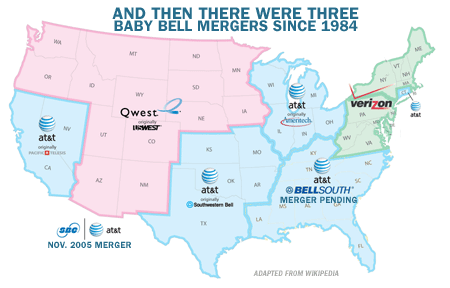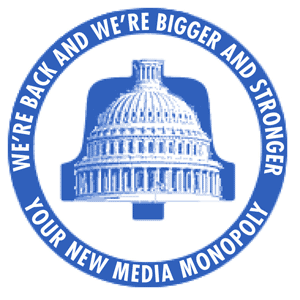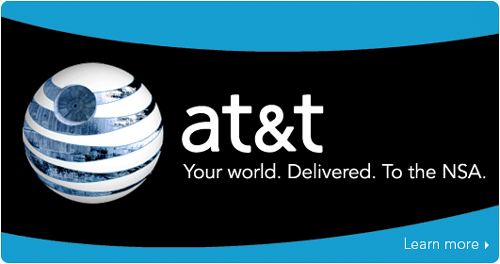What's all this about anyway?
What is a Local Franchise?
Why now? Who's pushing this legislation?
Why aren't our elected Representatives standing up for us?
What are these astroturf groups about?
What are the Cable Companies doing about this?
What can we do?
What's all this about anyway? Saveaccess is about saving public, educational and governmental access television from legislative oblivion. These are the more than 3000 community facilities running multiple cable channels around the country. These channels offer the only opportunity for uncensored first amendment speech anywhere in the media. But beyond that, they provide the localism and diversity lacking in the rest of the commercial media. More hours of public service media - and more media made by minorities - are produced in PEG centers each year than in all of the commercial media combined (actually - the difference is more than tenfold). Yet this hidden treasure of democratic media is under attack, by corporate greed and political ignorance and neglect. The legislation that moved quickly through Congress in 2006 was a rewrite of the the Tele-Communications Act of 1996, which itself was a revision of the Communications Act of 1934. Communications technology changes fast and there needs to be legislative alterations to improve and create new business environments while also improving and protecting the public interest. Unfortunately the recent legislation in the House, (Barton/COPE Act) only protected the business interests of it's primary patron, the Telephone industry (Telcos) while severely trampling the public interest. The Barton/COPE Act was only the latest legislation, there were many drafts before it. The Barton/Cope Act, as written, would have severely impacted the thousands of Public, Educational and Governmental Access channels and facilities around the country. The legislation effectively removed local municipal control over local rights-of-way and removed local voices from the process of negotiating for local video franchises. In addition, the legislation would have eliminated 'net neutrality' by allowing internet providers (phone and cable companies) the right to charge for preferential content delivery, creating a multitiered internet based on the ability to pay. Even worse, communications providers would no longer have been required to 'build-out' their networks equitably, that is, they could offer the new services in a wealthy neighborhood but neglect an adjacent low-income community (this is referred to as red-lining). The overall effect of this legislation would have been devastating to what we consider to be the basic principles of democratic media in our society, it will effect all of us. At present (1/20/07), the Barton/COPE Act passed in the House in 2006 but the Senate version failed to pass in the 109th Congress of 2006. The FCC intervened on December 20th, 2006 and issued their own version of a video franchise ruling (far worse than COPE). The FCC ruling will likely go to the courts and be in litigation for some time. In the meantime, the telcos have been unrelentless in pursuing State Video Franchises, spending as much as 40 million (in CA) to accomplish their mission. The battle in 2007 will truely be at the state level. Eleven states have fallen so far.
return to top
What is a Local Franchise?
When cable TV was first introduced, the legislation required cable TV providers to negotiate local franchises with individual municipalities. Since the franchises were in effect partial monopolies, the municipalities could choose between competing providers. Most importantly, the municipality maintained control over local right-of-way (access to public areas for running cable, etc.). In exchange for access to the publicly owned right-of-way, municipalities can negotiate for fees and services from the cable provider. These fees and services are what make the Public, Educational and Governmental channels and facilities possible. In addition, a local franchise provided a mechanism for addressing local complaints (poor service) and it insured that build-out and other public interest requirements could be closely monitored. As franchises expire, the municipalities can re-negotiate (either with the same provider or another competitor) and the fees and services can be renegotiated based on real need (such as additional PEG channel capacity for instance). Now that the Telcos have decided to enter the business, they have determined that local franchises are just too troublesome for their business model. The Telcos assert that the prospects of negotiating with several thousands municipalities for local right-of-way would slow their planned deployment and negatively impact on their competitiveness with cable companies (though cable companies have always done this, and many municipalities have offered the Telcos the option of operating under the same franchise agreement). Instead the Telcos want a 'national franchise' agreement. This would pre-empt all local franchises and allow the Telcos to enter any local market they choose without any local oversight or control. Cable companies would reap the benefits of the 'national franchise' as well. The Telcos have also moved to establish 'state-wide franchises' both to set precedent for federal legislation and to have a fall-back strategy should it fail. A number of states have passed the Telco driven state-franchise legislation and we're already beginning to see the negative fallout in places like Texas (see below). National and state-wide franchising do offer recognition of PEG services and provide for some form of continuation of channel capacity and operating fees. In some ways this is a good first step, since there is presently no federal legislation 'requiring' PEG channels and support. But the baselines established thus far are far lower than what is needed and they fail to take into account 'real need' based on local demand and instead default to a statistical percentage. In addition, there is no local oversight or recourse should these agreements be violated. The legislation calls for FCC oversight of the national franchise, a mammoth undertaking for an agency ill-equipped to handle the workload. The legislation would also defer all legal action to the commission, thus preventing due process in the courts.
return to top
Why now - Who's pushing this legislation?
The simple answer is profit, and the Telephone companies are the motivators of this legislation. They are spending tens of millions around the country in State and Federal lobbying to get what they want. Unfortunately, our elected representatives are only hearing one voice on this issue - that of the Telco lobbyists. The Telcos want to offer an array of new video, data and phone services to consumers (i.e. cable TV via fiber), but they don't want to be hindered by the same guidelines and laws that currently apply to Cable TV companies. It should be noted that Telcos have been able, under law, to provide video services for over ten years - they have not done so by their own choice. Instead the Telcos have spent the last ten years engaging in mergers, buy-outs, fiber infrastructure investments, outsourcing and huge layoffs. The result is that only three telephones companies (AT&T, Verizon, Qwest) now serve the bulk of the country (there were 8 regional bell companies after the 1984 split of AT&T). According to telecom analyst Bruce Kushnick, many of the Telco infrastructure upgrades of the last ten years (200 billion dollars worth) were paid for by tax cuts and other incentives granted through the '96 Telecom Act. Now that taxpayers have financed their new fiber infrastructures, the Telcos want even more public concessions. The Telcos


return to top
Why aren't our elected Representatives standing up for us?
Good Question - we should ask them! There are two factors at play; first understanding what the issues are, and secondly, the amount of money and noise that is involved. The problem with telecommunications legislation is that it is deals with new technologies and often very technical issues. In many cases our elected representatives simply don't understand the implications of the legislation before them. They rely on those around them to inform and guide their decision-making, and in this case the people they are hearing most are Telecom lobbyists. Combine this with a free market, anti-regulatory atmosphere and you have a recipe for disaster. This is why a piece of legislation as discriminatory and damaging as the COPE ACT can be called the "Communications Opportunity, Promotion and Enhancement Act of 2006" while it's sponsors maintain a straight face. When SBC/AT&T pushed similar state-wide franchise legislation through Texas recently, they spent over seven million dollars and had one lobbyist for every elected state representative and senator. The result, the billed passed. Today in Texas, PEG centers are already threatened and AT&T just announced a consumer rate increase that will net them over two million more in revenue a month. They can pay off their lobbying investment in four months. At present, widespread deployment of video services has yet to start. Then there is money, and lots of it. One of the most coveted committee appointments in Congress is to be on the House or Senate Commerce Committees where Telecom legislation is drafted. Politicians on these committees are virtually guaranteed record political and PAC donations. Alot has been written on the negative impact of political donations, most recently Bill Moyers summed it up in his article "The Culture of Corruption". The point is, most of our politicians will follow the money unless there is a huge public outcry to the contrary. We need to make noise - and lots of it!
return to top
What are these astroturf groups about?
As the Telcos push for their legislation at the state and federal levels, they have funded non-profit organizations to create public campaigns for their desired legislation. These groups are referred to as 'astroturf' or fake grassroots organizations. These astroturf campaigns take the form of print ads, TV ads, and web sites. They sell the public the need for "competition' and "consumer choice" in video/cable TV services and create artificial support for the Telco legislative agenda which in fact has little to do with consumer needs or protections. In some cases these astroturf campaigns have even resorted to borderline mail fraud to advance the telecom agenda. In all cases they have sold the public lies and deception. The public interest group Common Cause has produced a report on astroturf groups, called "Wolves in Sheep's Clothing".
return to top
What are the Cable Companies doing about this?
Cable companies have much at stake in the current legislation. On the one hand, they stand to lose by having another competitor in their market (especially one with possibly a superior infrastructure), but they also stand to gain from the same concessions granted to the Telcos. For this reason they have run counter campaigns in some states where they have been attacked directly, but in other places they have remained silent. For years cable companies have wanted to wriggle out of local franchise requirements for PEG and they would also enjoy reaping the profits to be made by eliminating net neutrality and red-lining requirements. So, while cable may lose its monopoly status in many communities, it could stand to profit handsomely from this legislation too.
return to top
What can we do?
We can do alot, but we need to act quickly. We need to: • organize locally to build strong local bases of awareness and support both in cities and in states to counter the Telco agenda for state and national video franchises • organize nationally to let our elected representatives know that the current legislation is unacceptable - and that it will effect our vote in November! • Tell everyone you know about this web site so they can take action too! • Please take a few minutes out of your busy schedule to SAVE COMMUNITY ACCESS TV! – OPPOSE THIS LEGISLATION! Send an email to Congress! Tell a Friend!
Long Story Short: The 2006 Rewrite of U.S. Communications Policy
- Long Story Short: The 2006 Rewrite of U.S. Communications Policy
By Lauren-Glenn Davitian,
Center for Media & Democracy (VT)
davitian@cctv.org
The U.S. House of Representatives passed a National Video Franchising bill on June 8th 2006. This bill, known as COPE—the Communications Opportunity, Promotion and Enhancement Act of 2006 (H5252)—permits the telephone companies to get quickly into the cable TV business by sidestepping local government approval (franchises) in favor of national service approval from the FCC. The Senate will
Your World. Delivered . . . to the NSA
AT&T certainly put a new spin on their slogan "Your World. Delivered" with the recent news (USA Today) that the company willingly turned over the phone call records of millions of citizens to the National Security Agency who requested the information without a legal warrant. The NSA is now in possession of what one employee described as the 'biggest database ever built'. Verizon and Bell South (soon to be purchased by AT&T pending federal approval) followed suit in providing the NSA what they wanted. Only Qwest resisted, by simply saying 'no' and challenging the NSA to follow legal process and produce a warrant (the NSA just went away).
Remember that AT&T was in the news (Wired) in April when an employee leaked information that AT&T had allowed the NSA to build a private switching room that allowed them to monitor all the internet and phone traffic passing through AT&T Worldnet internet backbones. The Electronic Frontier Foundation has since filed a suit against AT&T over these privacy violations which far exceed the recent case of just passing on call records.
"The companies that have betrayed their customers' trust by illegally handing the NSA direct access to their networks and databases must be brought to account. AT&T needs to put a sign on its door that reads, 'Come Back With a Warrant,'
– EFF Staff Attorney Kurt Opsahl
This is all very troubling since AT&T and Verizon are on the verge of overturning years of telecommunications policy with Congressional legislation in the House (COPE - HR5252) and Senate (S. 2686). Neither of these pieces of legislation would exist if not for the heavy lobbying of these companies, there is simply no pressing need for this legislation. The telcos have spent millions buying the attention of elected representatives in state houses across the country and in the capital in Washington. They have spent millions more on 'astroturf' advertising campaigns touting the need for 'consumer choice' and 'competition' in video services. Last we checked, having one's privacy violated wasn't very high on any 'consumer choice' lists.
As part of their new video service, AT&T and Verizon are planning to run fiber to consumers homes providing far more capacity than the current copper wire, hence the slogan, 'your world delivered'. The question is, given these companies willful neglect and irresponsible treatment of their customer's privacy - are you willing to entrust them with the data generated by your TV viewing habits, your online activity, purchases, bank transactions, health and other personal information? We think not - and we think Congress needs to explain why they are about to reward these corporations with new favorable legislation. We must tell Congress that they need to:
1) Stop HR.5252 and S.2686. These bills are corporate give-aways and nothing more.
2) Stop the AT&T-Bell South merger until anti-trust implications can be adequately reviewed.
3) Thoroughly investigate the NSA and the telephone companies and enact/enforce legislation so these abuses can never occur again.
More Information
Section 2702 of Title 18, part of the Electronic Communications Privacy Act, provides that "a provider of ... electronic communication service [including telephone service] to the public shall not knowingly divulge a record or other information pertaining to a subscriber to or customer of such service ... to any governmental entity" without the customer's consent or a subpoena or court order. Under section 2707, carriers face civil liability, including minimum damages of $1,000 per violation, punitive damages, and attorneys fees. Government employees who participated in a violation also may face administrative discipline.
Quote above from Center for Democracy and Technology
Also see: EFF Lawsuit Against AT&T

